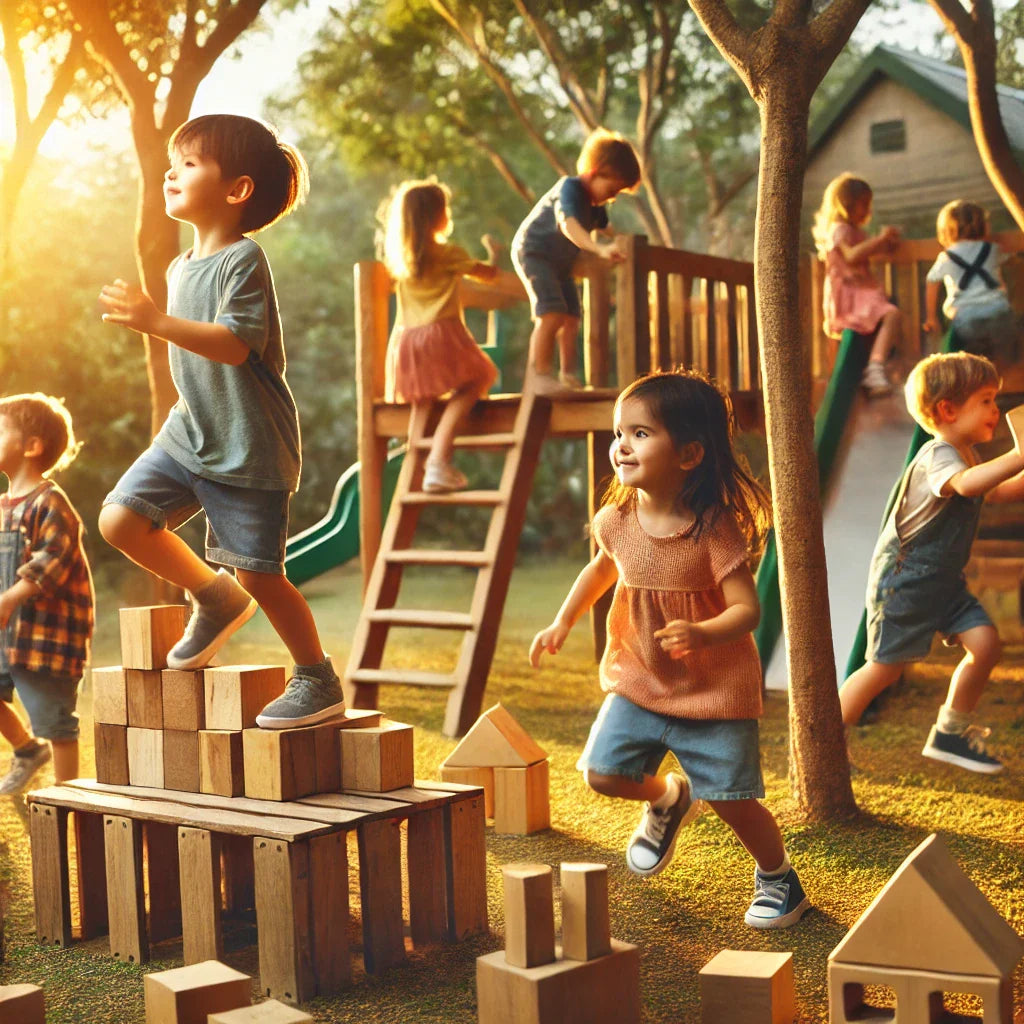
The Role of Play in Children’s Growth and Development
As someone who decided to homeschool just over a year ago to take more control over my children’s learning and development, I have been eager to explore what truly makes children "tick." While I don’t claim to be an expert, I’ve delved deep into the science of child development—beyond just IQ—and one of the most fascinating aspects is the power of play.
Far from being just a fun pastime, play is a fundamental part of childhood that helps children learn, grow, and make sense of the world. Whether it’s a game of tag, building structures with LEGO, or role-playing as a doctor, every type of play serves an essential function in a child's physical, cognitive, emotional, and social development.
1. Physical Development: Strengthening the Body Through Play
Play encourages movement and physical activity, which are crucial for overall health and fitness.
✅ Gross Motor Skills – Activities like climbing, running, and jumping improve balance, coordination, and endurance.
✅ Fine Motor Skills – Drawing, threading beads, or playing with LEGO refines hand-eye coordination and dexterity.
💡 Practical Tip: Encourage outdoor play as much as possible. Whether it’s climbing trees, skipping rope, or playing football, natural movement supports healthy muscle development and cardiovascular health.
2. Cognitive Development: Play as a Learning Tool
Play enhances problem-solving skills, critical thinking, and creativity.
✅ Imaginative Play – Pretend play (e.g., playing "house" or "shopkeeper") boosts creativity and storytelling abilities.
✅ Building and Puzzles – Activities like LEGO, jigsaw puzzles, and block-building develop spatial awareness and logical thinking.
💡 Practical Tip: Provide open-ended toys that allow children to experiment and create freely. From personal experience, I’ve seen my kids go from frustration to pure excitement when they finally solve a tricky LEGO challenge—the sense of achievement is priceless.
3. Emotional Development: Learning to Express and Cope
Play helps children process emotions and develop resilience.
✅ Handling Emotions – Play allows children to navigate joy, frustration, and disappointment in a safe environment.
✅ Stress Relief – Engaging in free play helps kids release pent-up energy and emotions.
💡 Practical Tip: Allow unstructured playtime where children take the lead. This helps them develop confidence and emotional independence.
4. Social Development: Building Essential Life Skills
Through play, children learn how to interact with others, collaborate, and develop empathy.
✅ Teamwork & Communication – Group games and sports teach sharing, cooperation, and conflict resolution.
✅ Role-Playing – Pretend play (e.g., playing teacher or doctor) allows children to understand different perspectives.
💡 Practical Tip: Encourage playdates and group activities to help children build social skills. Whether it’s playing shopkeeper, taking turns in a game, or resolving a dispute over a toy, these experiences teach lifelong relationship skills.
5. Spiritual & Moral Development: Play in an Islamic Context
Islam recognises play as an important part of a child’s development. The Prophet Muhammad (peace and blessings be upon him) was known to play with children, joke with them, and show affection, highlighting its role in nurturing strong bonds.
✅ Teaching Values Through Play – Games that involve turn-taking, fairness, and honesty subtly instil Islamic values.
✅ Spiritual Reflection – Exploring nature, storytelling, and even playing with pets helps children appreciate Allah’s creation.
💡 Practical Tip: Make Islamic teachings engaging and interactive. Story-based role play (e.g., acting out kindness from hadiths) can make moral lessons fun and memorable.
Practical Ways to Encourage Healthy Play
1. Create a Balanced Routine
✔ Allocate time for free play, structured play, and family playtime.
✔ Avoid overloading schedules with structured activities—children need time to play freely.
2. Minimise Screen Time
🚫 Excessive screen use interferes with creativity and social play.
✔ Prioritise hands-on activities like crafts, puzzles, and outdoor games.
3. Join in the Fun!
✔ Parents playing with children strengthens emotional bonds.
✔ Follow their lead—let children direct the play while you engage alongside them.
4. Create a Safe & Stimulating Play Space
✔ Indoors – Offer age-appropriate toys, books, and art supplies.
✔ Outdoors – Allow for exploration, climbing, and nature-based activities.
Why Play Matters More Than Ever
In today’s fast-paced world, where academic pressure and digital distractions dominate, play is more crucial than ever. It’s not just an activity—it’s an essential foundation for lifelong learning, emotional resilience, and creativity.
By prioritising different forms of play, creating opportunities for exploration, and engaging with our children, we nurture their development while building stronger family bonds.
So, next time your child invites you to play—say yes! It’s one of the best investments you can make in their future. 😊



Leave a comment
This site is protected by hCaptcha and the hCaptcha Privacy Policy and Terms of Service apply.